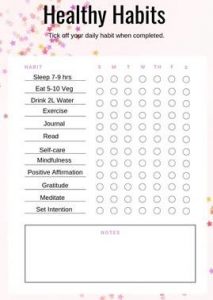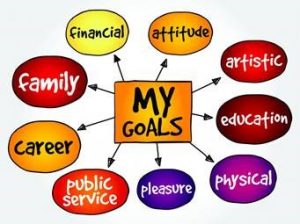COACHING FOR HIGH LEVEL ADMIN STAFF
 If you’re an executive assistant, does it feel like you make the impossible happen every single day? It’s a job that requires a lot of knowledge and flexibility, along with the ability to deal with all types of personalities. With the COVID-19 pandemic and all of the changes it’s brought to the workplace, you may be dealing with more stress now than ever and even starting to feel some burnout.
If you’re an executive assistant, does it feel like you make the impossible happen every single day? It’s a job that requires a lot of knowledge and flexibility, along with the ability to deal with all types of personalities. With the COVID-19 pandemic and all of the changes it’s brought to the workplace, you may be dealing with more stress now than ever and even starting to feel some burnout.
Executive assistants often feel like they need to put the needs of their managers and departments first. This can lead to a number of challenges, such as maintaining a work/life balance and feeling like you need to be available 24/7. What if you had someone in your corner who’s ready to listen to YOU and help you make changes both in your job and outside the office? By assessing the unique challenges you face in a high level administrative position, a life coach can work with you on the best ways to tackle tough situations and develop a clear and detailed plan of action. Best of all, you have someone who has your best interests at heart and is going to hold you accountable. Some of the outcomes from working with a life coach include:
- Establishing stronger boundaries (this is big one!)
- Building a stronger partnership with your manager(s)
- Improving communication and streamlining processes
- Increasing productivity and feeling more focused dealing with day-to-day tasks
- Learning tips for practicing self care and making yourself a priority
- Reducing stress and enjoying your job (and life!) more
Whether you’re new to an executive assistant position or if you’ve been at it for years, it’s always beneficial to take a step back, look at the big picture and examine what areas you’d like to work on both in and out of the office. If you’re ready to make some meaningful life changes and looking for a life coach that can help you through it all, Leah M. Joppy and Associates is ready to help. Call us at 301-670-0051 or email us at leah@lmja.com. And take a look at our article on Why Should I Work With A Coach?
Unlocking Employee Engagement
 How do you keep employees engaged? And especially now, in this time of crisis, how do you keep employees focused, while understanding the impact of these unprecedented times on their very lives? It’s not easy. Most people will take any tips they can to realistically move projects along. And knowing how to lead beyond work takes some creative initiative.
How do you keep employees engaged? And especially now, in this time of crisis, how do you keep employees focused, while understanding the impact of these unprecedented times on their very lives? It’s not easy. Most people will take any tips they can to realistically move projects along. And knowing how to lead beyond work takes some creative initiative.
Leah M. Joppy & Associates recently hosted a webinar titled 5 Tips to Unlocking Employee Engagement in Crisis – And Beyond. The purpose behind this webinar was to explore ways we all can use to keep employees engaged, active and interested.
Obviously, this subject was a hot one! During the highly interactive webinar we informed each other. Creative ideas were tossed around. Each participant could absorb the information and ask questions. Everyone came away from the webinar with insights into what they could do given their individual situation.
Here are some of the takeaways from the webinar.
- First, lead by example. We learn from each other. How we react is often an extension of how our leader deals with the situation.
- Encourage virtual collaboration. For some, this may seem silly, or scary. Technology is often puzzling. But showing how easy and effective it can be puts everyone at ease.
- Get to know your team on a social level. We’re not robots, rights? Getting to know your team as individuals, with specific needs, helps you appreciate more fully exactly what they’re going through and will help to identify resources needed.
- Offer honest feedback regularly. Think about what we hear on the news now – don’t we all appreciate honest assessment rather than vague direction?
- Recognize team members using their Appreciation Language. Everyone wants, and needs, appreciation, but you have to know how THEY want to be appreciated. People are different and they have a preference of method in which they like to be appreciated.
- Mindfulness. How do you feel about the current crisis? Whether your glass is half full or half empty, it is refillable. Taking care of ourselves today will determine our tomorrow, post-crisis.
- Practice empathy and flexibility. People have a lot going on – loss of job, homeschooling kids, personal health issues and maybe elderly parents who may live in another state – all of which is only made more complicated by the crisis. They need someone to be able to talk to and understand – to LISTEN. This is a new situation for most of us.
- Stay connected. There are so many ways nowadays – through phone, messaging, Zoom, Skype, GoToMeeting, and more. Staying connected keeps us occupied and engaged.
All in all, the webinar left us all energized. See the additional resources we sourced below. And stay tuned for the next one. If you want to make sure you don’t miss it, send me your email so I can include you on the next announcement.
Additional Resources:
- Book: “The 5 Languages of Appreciation in the Workplace: Empowering Organizations by Encouraging People“
- Book: “Leading From Where You Are: How Every Person Can Help or Hinder The Collaborative Culture“
- Article: Six Ways to Engage Virtual Employees
- Article: 7 Tips to Increase Employee Engagement Without Spending a Dime
Be safe, be well everyone!
Hit The Reset Button On Life
 We’re all struggling to get used to a new normal right now – social distancing, working from home, homeschooling our kids, not to mention dealing with fear and uncertainty. With so many changes in our lives, it’s tempting to stay in our pjs, crawl under the covers and spend the day bingeing shows on Netflix. The world may seem like it’s come to a standstill, but our need to live a productive life has not. So many of us were overcommitted, overworked and quite frankly, overtaxed before all of this started. As challenging as it may be, perhaps now is a good time to hit the “reset” button, step back and really take a look at our lives and routines.
We’re all struggling to get used to a new normal right now – social distancing, working from home, homeschooling our kids, not to mention dealing with fear and uncertainty. With so many changes in our lives, it’s tempting to stay in our pjs, crawl under the covers and spend the day bingeing shows on Netflix. The world may seem like it’s come to a standstill, but our need to live a productive life has not. So many of us were overcommitted, overworked and quite frankly, overtaxed before all of this started. As challenging as it may be, perhaps now is a good time to hit the “reset” button, step back and really take a look at our lives and routines.
Here are a couple of suggestions to keep in mind in order to keep your productivity – and spirits – uplifted:
Use extra time to start something new. Have you always wanted to start learning a new language? Take up a yoga practice? Or how about that idea for a new business that you keep putting on the backburner? Now is an ideal time to think about what YOU really want and the direction you want your life to take. Right now, you’re told all the things you can’t do. Change your mindset and start thinking about all the things you can start doing.
Be aware of how you’re structuring your day. Take some time and write down a schedule and prioritize your tasks. If you do your best work in the afternoon, tackle the most important items on your to-do list during that time. Try not to work on the couch, but rather from a clutter-free, quiet workspace where you can concentrate. And don’t forget to take breaks. It’s important to take a short break every 30-40 minutes and clear your head. Walk around the house, do some light exercise, anything that gives you a chance to decompress.
Be kind to yourself. Life right now is stressful. There are going to be days when you sleep in or stay up too late watching movies. It’s important to treat yourself with grace and not focus on the stumbles, which are inevitably going to happen during this uncertain period.
If you’ve thought about working with a coach, but have been setting the idea aside for a more convenient time, now is the perfect time to start! At Leah M Joppy and Associates, we’re here to help you find a newfound focus during these challenging times. We can work with you to set a routine and keep it on track, assess your life and career direction and help you take steps to make meaningful change. Call us at 301-670-0051 or email leah@lmja.com.
Navigating Through A New Normal
 As we all try to adapt to the changes going on in the world right now and establish new routines, one of the biggest challenges is feeling disconnected from our team and working from home in solitary. As a manager, you’re trying to stay calm and positive. You’re checking in with your team and helping them with prioritization and staying focused on achievable tasks. It’s a daunting undertaking and can make you feel more than a little overwhelmed and stressed. It can also feel a little lonely. You’re focused so hard on helping your staff that you can start to neglect your own goals and well-being. That’s why coaching can be just the answer. Working with a coach provides you with the partner you need while you’re trying to navigate the new normal of life. Here are a few areas where a coach can help right now:
As we all try to adapt to the changes going on in the world right now and establish new routines, one of the biggest challenges is feeling disconnected from our team and working from home in solitary. As a manager, you’re trying to stay calm and positive. You’re checking in with your team and helping them with prioritization and staying focused on achievable tasks. It’s a daunting undertaking and can make you feel more than a little overwhelmed and stressed. It can also feel a little lonely. You’re focused so hard on helping your staff that you can start to neglect your own goals and well-being. That’s why coaching can be just the answer. Working with a coach provides you with the partner you need while you’re trying to navigate the new normal of life. Here are a few areas where a coach can help right now:
Establishing routine. Just the act of having a coaching session once a month can start a new routine. And that time is yours to discuss goal setting, planning for the future, whatever you like! Having a concrete action plan with a sense of accountability can also jump-start a new routine and will carry you into well into the future.
Encouraging self-care. So much is out of our control, but one thing within our control is how we take care of ourselves. As a manager, you may be so focused on your team that you forget to make yourself a priority. However, maintaining a sleep schedule, taking time to exercise and eat properly are just some of the activities that encourage calm and rejuvenate the mind, body and spirit.
Looking to the future and establishing a path forward. We all have a little more time on our hands right now. Rather than thinking about what you can’t do, it’s an ideal time to think about what you CAN accomplish, both for yourself and your team. What were some of the goals you had in mind before we all needed to adapt to a new normal? Was it working on conflict resolution? Or perhaps learning how to manage multiple tasks and priorities more effectively? Now is an ideal time to set a strategy for the future with the help of a coach.
If you’ve thought about working with a coach, but have been setting the idea aside for a more convenient time, now is the perfect time to start. At Leah M Joppy and Associates, we’re here to help you find a newfound focus during these challenging times. Call us at 301-670-0051 or email leah@lmja.com.
FINDING BALANCE
 Have you ever uttered the words, “There’s just not enough time in the day to do everything I need to do…” Who hasn’t? In today’s high speed, high pressure, high stress world, it can be hard to find the balance that we’re looking for in our lives. And there are so many things that we need to balance – work, family, caring for others, caring for ourselves, household chores, errands, finding time for relaxation and leisure… the list goes on and on. Maintaining balance in our lives is so important, yet can feel so elusive. It’s such as popular topic that there’s a mountain of information about it. Simply Google search “finding balance in our lives” and you’ll be amazed at the number of results that pop up. So, why is it so hard to do?
Have you ever uttered the words, “There’s just not enough time in the day to do everything I need to do…” Who hasn’t? In today’s high speed, high pressure, high stress world, it can be hard to find the balance that we’re looking for in our lives. And there are so many things that we need to balance – work, family, caring for others, caring for ourselves, household chores, errands, finding time for relaxation and leisure… the list goes on and on. Maintaining balance in our lives is so important, yet can feel so elusive. It’s such as popular topic that there’s a mountain of information about it. Simply Google search “finding balance in our lives” and you’ll be amazed at the number of results that pop up. So, why is it so hard to do?
Achieving life balance can often feel so challenging and frustrating because there is no quick fix. It’s an ongoing, lifetime project without a finite completion date. Where to begin? For starters, ask yourself some basic questions:
- How many hours of sleep do you get per night?
- Do you find yourself unable to spend enough time with your family?
- Are you satisfied with your energy and fitness levels?
- Do you normally work more than 12 hours per day?
- Is your work satisfying and rewarding?
- Do you feel like you have to do everything on your own or can you delegate work to others?
Once you’ve spent some time mulling over these questions and have more awareness of your current situation, it’s time to dig a little deeper and explore the following areas:
- What are your life balance goals? Define what really matters to you!
- How do you spend your time? Analyze your current activities and identify time wasters.
- How do you structure your day? Begin to prioritize your “to-dos”, examine your efficiency and where you can delegate.
- What boosts your energy? What drains it? Start to identify those energy drains. (Hint: this is one of the main causes of poor life balance!)
Remember, balance is a lifelong endeavor, so be prepared for challenges and changes! Your priorities can change, your life can suddenly take a different direction or any number of hurdles can come your way. The key is to have the tools in place to meet those challenges head on.
Life balance is not a destination, but a constant journey. And it’s a journey that you don’t have to take alone. Leah M Joppy and Associates has worked with many clients who are seeking a more fulfilling, balanced life. The coaching process helps you explore and define what life balance means for you and how to successfully achieve it step-by-step. Call us at 301-670-0051 or email leah@lmja.com.
MANAGING CONFLICT
 When you get a group of people working together in an office day after day, conflicts are going to happen. Workplace conflict is a major issue that needs to be effectively addressed by leaders before it creates a toxic environment. If left unaddressed, it can lead to a lack of productivity, increased absenteeism and eventually higher employee turnover. There are so many reasons why conflict occurs in the workplace, including: poor management, unclear job roles, personality clashes, inadequate training, lack of opportunity and so many others.
When you get a group of people working together in an office day after day, conflicts are going to happen. Workplace conflict is a major issue that needs to be effectively addressed by leaders before it creates a toxic environment. If left unaddressed, it can lead to a lack of productivity, increased absenteeism and eventually higher employee turnover. There are so many reasons why conflict occurs in the workplace, including: poor management, unclear job roles, personality clashes, inadequate training, lack of opportunity and so many others.
While it’s a natural human tendency to avoid uncomfortable conversations with others, that strategy won’t work in the long term. It’s up to managers to give high priority to handling conflict in the office and ensure all employees are committed to solving issues. Managers need to instill in their staff that disagreements happens, but mutual respect is key. If handled correctly, conflicts can result in growth and greater understanding within the workplace. Here are a few suggestions to make sure that happens:
- Tackle issues early. Waiting until a conflict escalates and turns into an unmanageable issue only makes problem solving more challenging.
- Find out the root cause of the problem. Ask open-ended questions that provide people a chance to talk and feel valued. Dialog is key!
- Take a look how you manage. Before you can manage others, take a look at yourself and how you handle conflict. Do you act defensively? What kind of body language do you use?
- Act as a referee rather than a judge. As a manager, it’s important to remain impartial when conflicts arise. Meet with employees individually and then together in an uninterrupted space. Once employees are talking through their differences, let them work it out and don’t get drawn into taking sides.
- Consider conflict resolution training. Many managers don’t know how to effectively resolve conflicts because they simply haven’t had the proper training. It can really go a long way towards making conflict resolution more effective for all parties.
Conflict is an unavoidable part of workplaces, but it’s how these conflicts are handled that counts. Leah M Joppy and Associates has worked with many organizations to teach them how to effectively handle conflicts. We give you the tools to diffuse issues quickly and effectively in a manner where all employees feel valued and heard. For more information, contact us at 301-670-0051 or email leah@lmja.com.
SETTING GOALS
 A new year is upon us and it’s a time that naturally lends itself to reflection and thinking about what we want to achieve in the future. Setting goals are an important part of this process. Goals give us a sense of purpose and meaning, point us in the direction we want to go and help us become more interested and engaged. All of this adds up to greater overall happiness in our lives!
A new year is upon us and it’s a time that naturally lends itself to reflection and thinking about what we want to achieve in the future. Setting goals are an important part of this process. Goals give us a sense of purpose and meaning, point us in the direction we want to go and help us become more interested and engaged. All of this adds up to greater overall happiness in our lives!
Aristotle said, “Well begun is half done.” In terms of goals, he’s absolutely right. That’s why we need to pay careful attention to how we set our goals and move towards accomplishing them. Here are few ways to get started:
Set A Goal That Motivates You
Goal achievement requires commitment, so it’s important that you set goals that you’re actually motivated to accomplish. These are high priority areas of YOUR life, not your spouse, children, co-workers, etc. Start by writing down why your particular goal is valuable and meaningful to you. If you were to share your goal with someone, how would you convince him or her that it’s worthwhile? This is a good exercise to help you if you start to doubt your ability or lose confidence.
Choose a Goal That Emphasizes Your Value
It’s easy to beat ourselves down and not recognize our assets. Especially at the beginning of the year, we should think about making ourselves a priority. Think about how your friends and co-workers appreciate you – is it for your calmness? Your thoughtful consideration? Whatever your strengths, try to create a goal that works with that strength. Not only will it make you wiser and stronger, but more fulfilled.
Choose A Goal To Create a Journey, Not Just A Destination
Instead of setting a life goal, think about setting a life direction. Determine the things that would create a compelling and fun journey. Ask yourself some questions like: “How do I want to spend my time?” “What do I want to learn?” “What daily activities make me want to get out of bed and get moving?”
Set Goals In Writing
There’s something about the physical act of writing down a goal that makes it real and tangible. Frame your goal statement positively. Use the word “will” instead of “would like to” or “might.” Then post your goal in a visible place to remind yourself that you’re working towards this incredible accomplishment!
Make An Action Plan
You know what you want. Now, how are you going to accomplish it? Don’t get so focused on the outcome of your goal that you forget to plan all of the things that you need to tackle along the way. Write out the individual steps and cross each one off as you complete it. That way, you see that you’re making progress.
We adopt goals for one reason: to change our lives. The path toward our goals may not
always be easy or run smoothly, but having goals is part of what makes life happier and more meaningful. Leah M Joppy and Associates can help you make 2020 your best year yet by helping you identify and achieve the goals that really matter to you. Call us at 301-670-0051 or email leah@lmja.com.
EFFECTIVE TEAMS
 Building and maintaining an effective team is not something you should think about in between all of your other day-to-day activities. Projects come and go, but the teams behind them drive the results. Leaders play an important role in team development, from facilitating communication to mediating conflict to setting standards for accountability. But all too often, it’s easy to forget to check in and make sure teams are running smoothly and efficiently. The beginning of a new year is a great time to step back and take a look at what’s working, what’s not and make necessary changes. To do so, let’s take a look at a few characteristics of effective teams:
Building and maintaining an effective team is not something you should think about in between all of your other day-to-day activities. Projects come and go, but the teams behind them drive the results. Leaders play an important role in team development, from facilitating communication to mediating conflict to setting standards for accountability. But all too often, it’s easy to forget to check in and make sure teams are running smoothly and efficiently. The beginning of a new year is a great time to step back and take a look at what’s working, what’s not and make necessary changes. To do so, let’s take a look at a few characteristics of effective teams:
- Having a common goal and shared objectives
- Creating a positive environment around the objectives
- Maintaining open communication
- Establishing clearly defined team roles
- Focusing on time management in order to meet deadlines
- Implementing practical problem solving tactics
- Encouraging differences in opinions and not suppressing alternative ideas
You can have all of the checkpoints listed above, but the foundation of any effective team is trust. Team members need to know that everyone will deliver on their promises, support shared goals and maintain open communication. Patience, transparency and providing mutual feedback are a few ways to cultivate trust. Team building exercises and problem-solving activities are also effective ways to build team trust.
Effective teams are the foundation of every successful organization. If you feel like your teams could use some help in the New Year, Leah M. Joppy and Associates can help. We’ve helped a wide variety of organizations assess their current team structure, determine where changes can be made and develop a course of action to get everyone on the same page. We also specialize in team building activities that promote bonding and trust. For more information, contact us at 301-670-0051 or email leah@lmja.com.
Strategic Planning For The New Year
 Like most of us, you’re probably consumed with all the holiday hoopla right now and finishing out the current year on a strong note. But don’t forget that 2020 is just around the corner and you can’t put off strategizing for the New Year. Now it the time to clarify your goals for next year and beyond, think about how you can meet those goals and when you should meet with your team to get everyone on board.
Like most of us, you’re probably consumed with all the holiday hoopla right now and finishing out the current year on a strong note. But don’t forget that 2020 is just around the corner and you can’t put off strategizing for the New Year. Now it the time to clarify your goals for next year and beyond, think about how you can meet those goals and when you should meet with your team to get everyone on board.
You can make an argument that your annual strategic planning session is one of the most important things you’ll do all year. It’s a chance to move your team’s long-term strategic goals forward and make sure you’re all on the same page. It gives you an opportunity to step back and look at the bigger picture. For example, what are some of the biggest challenges facing your department over the next year and beyond? What your strengths and weaknesses to meet those challenges?
No pressure, right? Strategic planning takes effort and preparation, but it doesn’t have to become a stressful exercise. Here are a few steps to get the ball rolling:
- Define your department’s vision: This is the first and most critical step in creating a long-term plan. This statement should answer the key questions that drive your department. Where are you headed? Where do you want to be? Get it down on paper!
- Establish short-term goals: This should include everything you want to achieve over the next 12-36 months. Remember to keep them “S.M.A.R.T.” (specific, measurable, actionable, reasonable and timely).
- Outline your strategies and create an action plan: Strategies are the steps you’ll take to meet your short-term goals. Your action plan is all about the specifics – what you’re doing, when you’ll do it, what resources are needed, etc.
- Review and modify on a regular basis: Don’t create a strategic plan and leave it at that. Check in regularly to make sure you’re progressing toward your goals. Foster strong communication with your team to ensure everyone understands your direction and what they should be doing to achieve strategic goals.
Planning in advance is one way effective leaders avoid the stress of being behind the eight ball. Leah M. Joppy and Associates has worked numerous firms to draft annual plans that align and inspire teams to reach their goals for the coming year – and beyond. Then we help you put it all into action. For more information, contact us at 301-670-0051 or email leah@lmja.com.
Coaching For Self Reliance
 What is your first memory of feeling truly self-reliant? Maybe it was the day you received your driver’s license and the possibilities that came with the feeling of independence. Perhaps it was when you became financially independent from your parents and started paying your own bills. Whatever the example that comes to mind, self-reliance is trusting your abilities to get through the challenges of life on the back of your own resourcefulness.
What is your first memory of feeling truly self-reliant? Maybe it was the day you received your driver’s license and the possibilities that came with the feeling of independence. Perhaps it was when you became financially independent from your parents and started paying your own bills. Whatever the example that comes to mind, self-reliance is trusting your abilities to get through the challenges of life on the back of your own resourcefulness.
In his essay entitled “Self-Reliance”, Ralph Waldo Emerson states that society has an adverse effect on a person’s growth. Self-sufficiency, Emerson wrote, gives a person the freedom they need to discover one’s true self and attain true independence. He advocates that people avoid following the path of others and follow their own instincts to blaze their own trail. Self-reliance means different things to different people, but there are a few character traits that are often associated with it. You can probably see yourself in at least a few:
- Self-disciplined
- Hardworking and dedicated
- Dependable
- Perseverance
- Reliable
Self-reliance is important for so many reasons beyond just the basics. It means you can solve problems and make decisions by yourself. It enables you to develop self-knowledge and self-acceptance. Self-reliance also provides perspective, which can lead to greater direction in your life. And perhaps one of the greatest gifts is that it allows you to feel happy by yourself and about yourself – without relying on others to provide that happiness.
Sounds great, right? But we all know that sometimes self-reliance is easier said than done. Are you feeling like you could use a self-reliance jumpstart? Here’s a short list of some ways to start:
- Accept yourself and appreciate your unique character strengths.
- Build your inner confidence. Receiving compliments and reassurance from others feels great, but self-reliance involves the ability to feel confident in yourself without them.
- Make your own decisions and stop looking outside for security and guidance.
- Recognize dependence and manage it. Turning to others is not a bad thing, but when we do it consistently, we miss out on chances to build up our own confidence.
And that’s just the beginning…
Self-reliance doesn’t mean living in a bubble without other people. However, it is knowing when to ask for help without handing over your sense of self. That’s where a coaching partner can be a powerful ally. Leah M Joppy and Associates is ready to work with you to create a path to greater self-sufficiency. Call us at 301-670-0051 or email leah@lmja.com to discuss your goals.
There are many reasons why people work with a coach. Learn more.